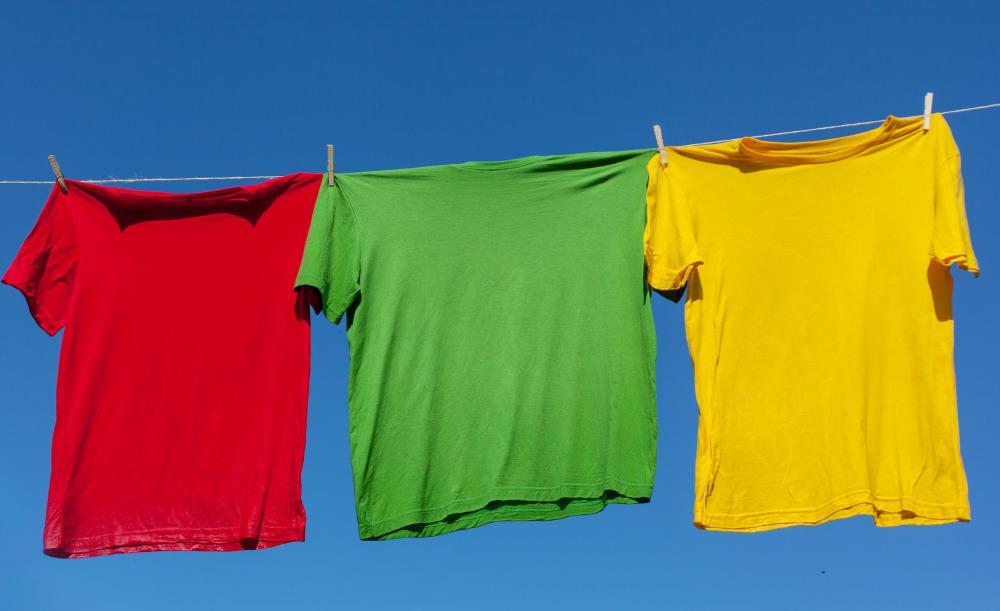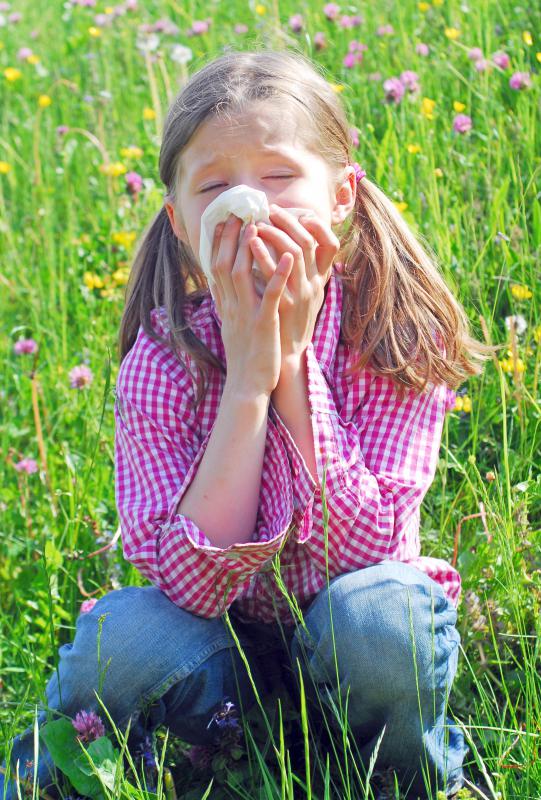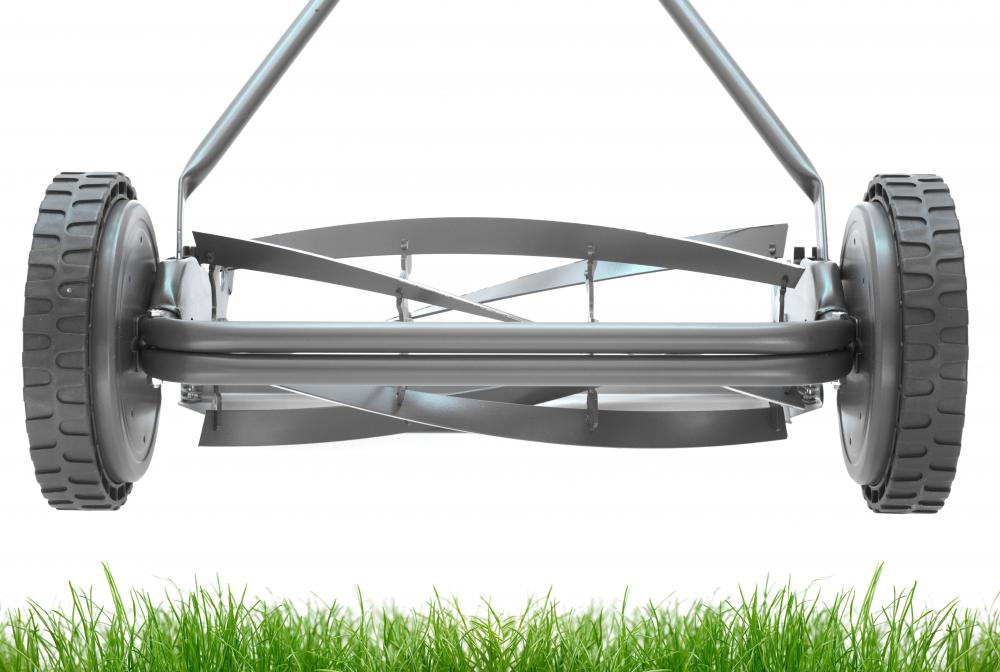At HomeQuestionsAnswered, we're committed to delivering accurate, trustworthy information. Our expert-authored content is rigorously fact-checked and sourced from credible authorities. Discover how we uphold the highest standards in providing you with reliable knowledge.
What is Grass Pollen?
Grass pollen is comprised of microscopic grains that contain the plant’s reproductive material, and is released from the grass to be blown by the wind to fertilize other plants. The pollen can land in a person’s nose, skin, eyes, and lungs. A few species of grass produce pollens that can cause strong allergies in people. These allergies are typically known as hay fever, but can also cause asthma.
There are about 1,200 species of grass in North America, but only a few cause allergies. Among the most common grasses that cause hay fever are Kentucky bluegrass, Bermuda grass, Johnson grass, orchard grass, and timothy grass. Some of these grasses are used for lawns, but, if grown properly, produce little pollen. Frequent mowing to keep the grass from flowering will prevent the production of most grass pollens.

The lawn grasses that produce allergenic pollen vary geographically. In Europe and in the Northern United States, Kentucky bluegrass is a common lawn grass. In the Southern United States, a common grass is Bermuda grass, which does not tend to produce pollen unless stressed. If fertilized regularly, watered well, and mowed regularly, this type will produce little pollen. There are varieties of Bermuda grass that do not produce any pollen.
Lawns and golf courses are generally not a major source of pollen. Many lawns trap grass pollen, removing it from the air. It is grasses in empty lots, by the sides of roads, and in medians that are usually the major sources of pollen.

The type of lawn mower used can affect the amount of pollen discharged into the air from mowing. Mowers that suppress the release of pollen include rear-bagging mowers, push reel mowers, mulching mowers, and most power reel mowers. Side-discharging mowers used without a bag tend to dislodge pollen from the lawn and into the air.
The grass pollen season varies depending on location. In the northern United States, the season tends to run from May to August. It is longer in the South, starting in March and finishing in October. Weather conditions also affect the pollination period, and can increase or decrease the amount of pollen in the air.

Grass pollen allergies can vary depending on the region in which a person lives. An allergy sufferer may be susceptible to allergies from the pollen in one part of the country, but not in another. Also, a person who has undergone injection therapy to treat such allergies may need a new series of allergy shots if he moves from one geographical location to another. Areas that used to be allergy-free havens for people with grass pollen allergies, such as Arizona, have become overrun with pollen as lawns and lush vegetation have been planted in newly developed regions.

In areas with a lot of pollen, experts track the amount of grass pollen in the air and publish it as part of the weather report. Known as the grass pollen count, this information can help allergy sufferers decide whether to stay indoors on days when the pollen is particularly bad. Warm dry weather combined with breezes generally results in high pollen counts. These counts are not broken down by grass species, however, because the grass pollens look identical microscopically.

Grass pollen allergy sufferers are often advised to avoid the outdoors between 5 and 10 AM, if possible, as this is usually the time that pollen counts are highest. Drying clothes in a clothes dryer, instead of hanging them outdoors to dry, will keep pollen from getting on them. It is also advisable to keep home and car windows closed to keep pollen out. Mowing can be problematic for hay fever sufferers, so those who are allergic should either wear a mask or have someone else cut the grass.
AS FEATURED ON:
AS FEATURED ON:

















Discussion Comments
@frankjoseph - Grass pollen allergy symptoms include all the sorts of symptoms that typical allergies can cause: itchy skin, sneezing and congestion, breathing problems or even asthma, and red or irritated eyes. It really depends on the sufferer.
For people that are allergic to grass pollen, do their allergies to grass pollen manifest by sneezing or by developing a rash on the area of the skin that came into contact with the offending grass?
Post your comments